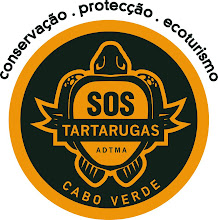There are various ways in which you can contribute to the conservation of marine turtles in Cabo Verde, depending on your experience and the time you have available. We are inviting applications for varying periods, ranging from a few weeks to the entire season. You can even participate if you have only a few days on your holiday. The available positions are detailed below.
WHAT'S THE KEY INGREDIENT TO WORK IN THIS PROJECT?
The ability to work hard under mentally & physically challenging conditions with a group of people you don't know who all have different personalities, cultures, experiences and continue to have a positive attitude. We can teach you to work with turtles but you have to bring a great attitude with you! Nesting usually begins in the second week of June and peaks during July, August & September, declining to one or two nests a day by the beginning of October. Hatching goes on until late December. July, August & September are intense and tiring and you will need considerable mental and physical stamina, commitment and calmness during this time.
We are looking for people who really want to work in this field and who view the Ranger positions as jobs, not as a working holiday. For this reason, unlike the majority of turtle conservation projects, we offer a small amount of financial support as well as free accommodation. If you would like a working holiday please look at the description for short term volunteers.
Our work consists of:
·
June – Night
patrols and morning patrols. Daily
presentations at the hatchery.
Daytime work (maintenance, making signs, outreach). Turtle Walks for guests start in the
last week of the month.
·
July – Night
patrols, morning patrols. Field camps operational. Daily presentations at the hatchery. Daytime work (maintenance, making
signs, outreach). Turtle Walks.
·
August - Night
patrols, morning patrols. Field camps operational. Daily presentations at the hatchery. Daytime work (maintenance, making
signs, outreach). Turtle
Walks. Nest excavations at the
hatchery and on the beach, hatchling releases. Hatchery checks throughout the night.
·
September -
Night patrols, morning patrols. Field camps operational. Daily presentations at the
hatchery. Daytime work
(maintenance, making signs, outreach).
Turtle Walks. Nest
excavations at the hatchery and the beach, hatchling releases. Hatchery checks throughout the night.
·
October -
Morning patrols. Afternoon patrols to excavate nests. Daily presentations at the hatchery. Daytime work (maintenance, making
signs, outreach). Nest excavations at the hatchery. Hatchling releases.
Hatchery checks throughout the night. Field camps close.
·
November -
Hatchery checks throughout the night. Morning & afternoon patrols to
excavate nests. Daily
presentations at the hatchery.
Daytime work (maintenance, making signs, outreach). Nest excavations at
the hatchery.
To get an idea about Sal & about our work please look at these photos.
To get an idea about Sal & about our work please look at these photos.
This is an
opportunity to be part of a new and expanding project that is achieving
excellent results and with your contribution will continue to evolve. It will not only provide you with good
experience of turtle conservation techniques but also give you the opportunity
to make a real difference to the survival of marine turtles. SOS Tartarugas
staff have been directly responsible for saving numerous nesting turtles and
hatchlings and experience a high level of satisfaction from being able to
rapidly affect the declining situation in Cabo Verde. Rangers are based in Santa Maria but spend varying periods
at the field camp in basic conditions. Please note that only water and basic
foods are provided in the camps (see section about the camp for more
information).
This is
challenging work that can be extremely tiring and stressful. You will work during the night as well
as during the day. A good level of
fitness and physical and mental energy is required as patrols are long (some
are all night), conducted on foot and may be as much as 15km. Shift patterns vary but you will have
one day’s rest per week. Read the
FAQs for more information.
We patrol in
pairs and are sometimes supported by the military but you will encounter
hunters on the beach even if soldiers are present. You should be sure that you are
mentally strong and calm enough to accept this.




No comments:
Post a Comment